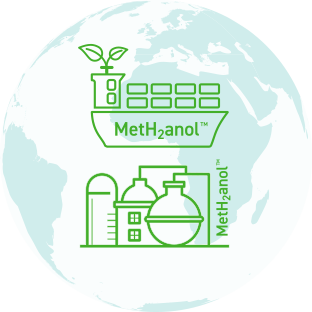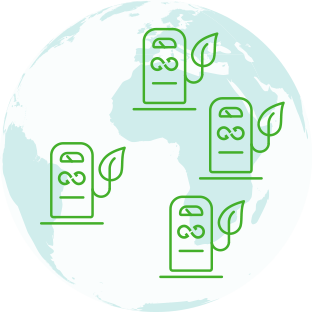
We have an ambition to establish several financially sound production units and supply chains internationally, as well as to create alliances and industrial technology collaborations with international partners both upstream and downstream.
Our first production unit is to be established in Norway in close collaboration with strategic alliance partners involved in forestry, construction and fish farming technologies, waste management and other biomass production.

A big global market exists for biomethanol as a biogenic resource.
Global production of methanol, which amounted to 98 million tonnes in 2020, derives almost entirely from fossil sources. Estimates indicate that demand for methanol will rise to more than 500 million tonnes by 2050.
Biomethanol and other green variants will account for 135 million and 250 million tonnes of this increase respectively (source: Methanol Institute).

Methanol ranks among the liquid chemicals most widely traded on a global scale, and is used as a raw material in a number of industries.
The bulk of this commodity goes to the chemical sector, where it represents an essential input factor for many other substances and products which the world depends on.
In addition to serving a fossil-free ingredient in chemical manufacture, biomethanol is also a very good replacement for fossil fuels in most maritime and land-based transport applications.

Biomethanol provides an efficient energy and hydrogen carrier which is ready for use in fuel cells.
Methanol is very easy to handle, using virtually the same procedures and technology as diesel oil and petrol.
That offers the opportunity to utilise an existing worldwide energy infrastructure comprising pipelines, storage tanks and refuelling facilities. This has been built up to meet the current requirements for supplying methanol and liquid fuels delivery to the transport sector and chemical industry.